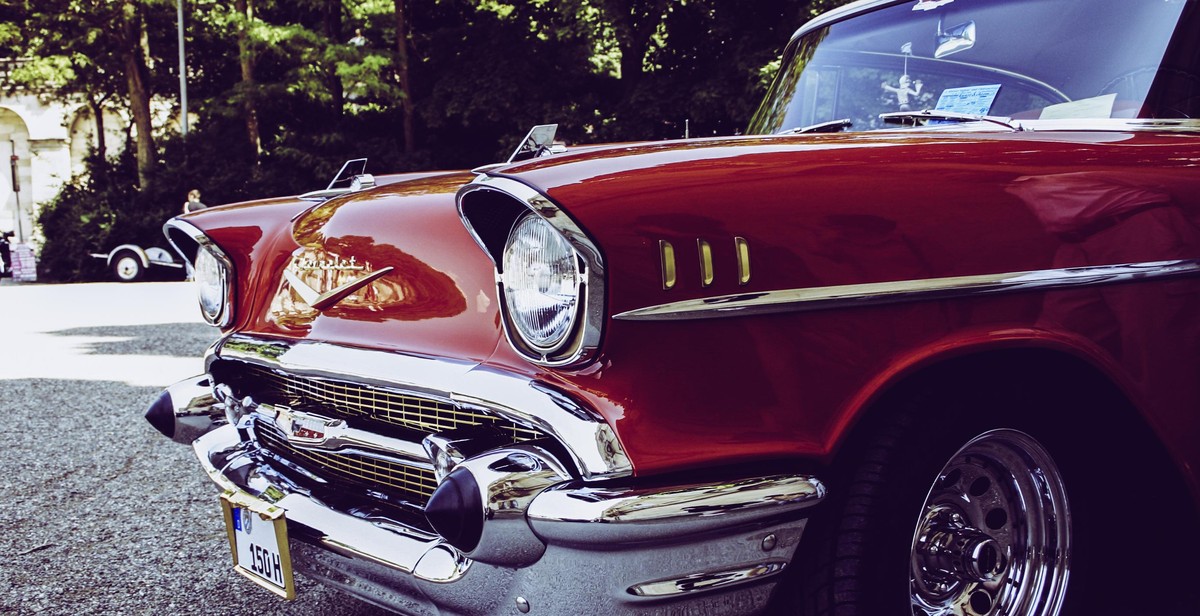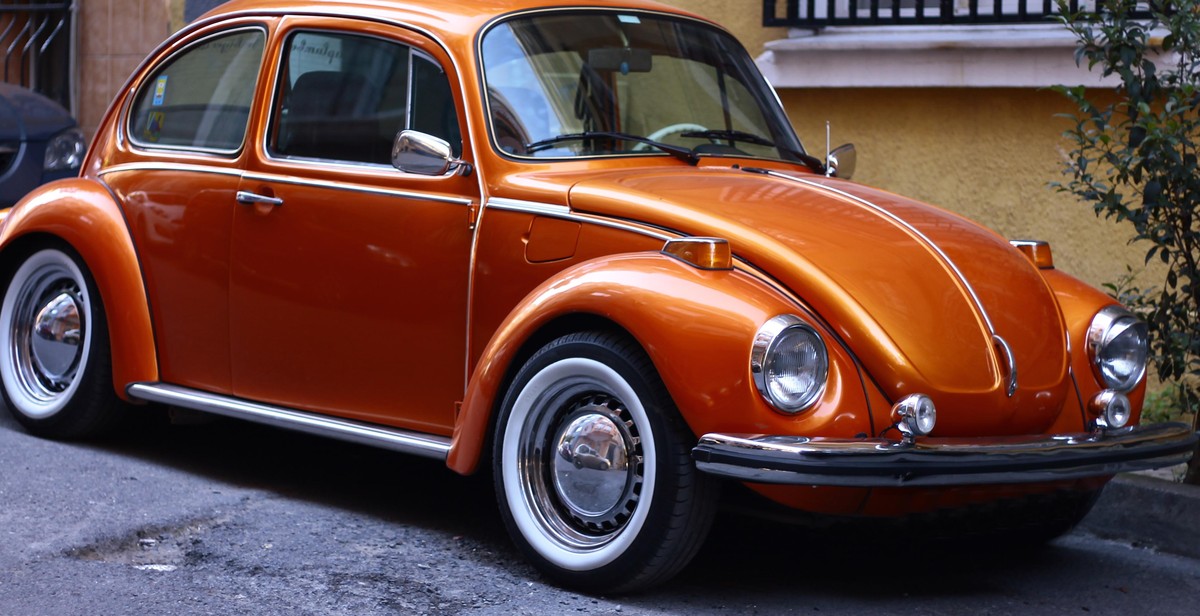How to Choose the Right Classic Car Insurance for Your Oldtimer
Classic cars are more than just automobiles; they are a passion, a hobby, and a valuable investment. As a classic car owner, you understand the importance of maintaining and protecting your vehicle. Classic car insurance is a crucial aspect of that protection plan. However, choosing the right insurance policy can be a daunting task, and one that should not be taken lightly.
Why Classic Car Insurance is Different from Regular Car Insurance
Classic cars have unique insurance needs that differ from those of regular cars. Classic cars are often more valuable than their modern counterparts, and they require specialized care and attention. Classic car insurance policies are designed to provide coverage for the unique risks that classic car owners face.
Factors to Consider when Choosing Classic Car Insurance
When selecting a classic car insurance policy, there are several factors to consider. These include:
- The value of your classic car
- The age of your classic car
- How often you plan to drive your classic car
- The type of coverage you need
- The insurance company’s reputation and customer service
Types of Classic Car Insurance Coverage
There are several types of classic car insurance coverage, including:
- Agreed Value Coverage
- Stated Value Coverage
- Actual Cash Value Coverage
- Inflation Guard Coverage
Conclusion
Choosing the right classic car insurance policy is essential to protecting your investment and ensuring that you can enjoy your classic car for years to come. By considering the unique needs of your classic car and selecting the right coverage, you can rest assured that your vehicle is protected.

Why Classic Car Insurance is Important
Classic cars are more than just vehicles; they are prized possessions that hold significant value. Owning a classic car is a dream come true for many, and protecting it should be a top priority. Classic car insurance is essential for protecting your investment and ensuring that you are covered in the event of an accident or theft.
Specialized Coverage
Classic car insurance provides specialized coverage that is tailored to meet the unique needs of vintage vehicles. Unlike standard auto insurance, classic car insurance takes into account the age, rarity, and value of the car. It also covers damages that are not typically covered by regular insurance policies, such as damages caused by natural disasters or vandalism.
Additionally, classic car insurance policies often include coverage for spare parts, which can be difficult to replace and costly to repair or replace. This means that you can easily replace parts that are damaged or stolen without having to pay out of pocket.
Agreed Value Coverage
One of the most significant benefits of classic car insurance is agreed value coverage. This means that you and the insurance company agree on the value of your vehicle, and in the event of a total loss, you will receive the agreed-upon amount. This is important because classic cars often appreciate in value over time, and standard insurance policies may not provide enough coverage to replace them.
Lower Premiums
Contrary to popular belief, classic car insurance can often be more affordable than standard auto insurance. This is because classic cars are typically driven less frequently and are often stored in a garage or other secure location. This reduces the risk of accidents and theft, which can lower insurance premiums.
Overall, classic car insurance is essential for protecting your prized possession. It provides specialized coverage, agreed value coverage, and lower premiums, making it a smart investment for any classic car owner.

Factors to Consider When Choosing Classic Car Insurance
Choosing the right classic car insurance for your oldtimer can be a daunting task. There are several factors that you need to consider to ensure that you get the best coverage for your precious vehicle. Here are some of the most important factors to consider:
Usage
The first factor to consider is how you plan to use your classic car. Will you be driving it on a daily basis or just for special occasions? Different insurance policies have different usage restrictions, so it’s important to choose a policy that fits your needs.
Age and Condition of the Vehicle
The age and condition of your classic car will also play a role in determining the type of insurance policy you need. If your car is in excellent condition and has been well-maintained, you may be able to get a policy that offers more comprehensive coverage. However, if your car is older and in need of repairs, you may need to opt for a policy with more limited coverage.
Mileage Restrictions
Many classic car insurance policies come with mileage restrictions. This means that you will only be covered for a certain number of miles each year. If you plan to drive your car frequently, you may need to choose a policy with a higher mileage limit.
Deductible
The deductible is the amount of money you will need to pay out of pocket before your insurance coverage kicks in. When choosing a classic car insurance policy, it’s important to consider how much you can afford to pay in deductibles. A higher deductible may lower your monthly premium, but it could also mean that you will need to pay more out of pocket in the event of an accident.
Coverage Options
Finally, it’s important to consider the coverage options that are available to you. Some policies may offer additional coverage for things like roadside assistance or emergency repairs. Be sure to choose a policy that offers the coverage you need to protect your classic car.
| Factors to Consider | Description |
|---|---|
| Usage | Will you be driving it on a daily basis or just for special occasions? |
| Age and Condition of the Vehicle | Determining the type of insurance policy you need. |
| Mileage Restrictions | Many classic car insurance policies come with mileage restrictions. |
| Deductible | It’s important to consider how much you can afford to pay in deductibles. |
| Coverage Options | Choose a policy that offers the coverage you need to protect your classic car. |

Types of Classic Car Insurance
Classic car insurance is different from regular car insurance in that it is specifically designed to cover the unique needs of classic and vintage cars. There are several types of classic car insurance coverage options available, including:
Stated Value Coverage
Stated value coverage is a type of classic car insurance that allows the owner to set a specific value for their vehicle. This value is agreed upon between the owner and the insurance company, and is used to determine the amount of coverage provided. In the event of a total loss, the insurance company will pay out the stated value of the car, regardless of its actual market value.
Agreed Value Coverage
Agreed value coverage is similar to stated value coverage, but the value of the vehicle is agreed upon by both the owner and the insurance company. This type of coverage typically provides more protection than stated value coverage, as the agreed upon value is often higher than the market value of the car. In the event of a total loss, the insurance company will pay out the agreed upon value of the car.
Actual Cash Value Coverage
Actual cash value coverage is a type of classic car insurance that is based on the current market value of the vehicle. In the event of a total loss, the insurance company will pay out the actual cash value of the car, which may be lower than the stated or agreed upon value. This type of coverage is typically less expensive than the other options, but may not provide enough coverage for high-value cars.
| Insurance Type | Pros | Cons |
|---|---|---|
| Stated Value Coverage | Owner can set a specific value for their car | Insurance company may not pay out full value in the event of a total loss |
| Agreed Value Coverage | Value of the car is agreed upon by both the owner and the insurance company | May be more expensive than other types of coverage |
| Actual Cash Value Coverage | Less expensive than other types of coverage | May not provide enough coverage for high-value cars |

Tips for Choosing the Right Classic Car Insurance
Choosing the right classic car insurance is crucial to protecting your investment. Here are some tips to help you make the right decision:
Research and Compare
Do your research and compare policies from different insurers. Look for policies that offer the coverage you need at a price you can afford. Don’t be afraid to ask questions and clarify any doubts you may have.
Look for policies that offer agreed value coverage, which means that you and the insurer agree on the value of your car upfront. This ensures that you will be paid the full value of your car in case of a total loss.
Read the Fine Print
Make sure you read the fine print of the policy before signing up. Look for any exclusions or limitations that may affect your coverage. Some policies may have restrictions on how much you can drive your car or where you can park it.
Make sure you understand the deductible and how it affects your premium. A higher deductible may lower your premium, but it also means you will have to pay more out of pocket in case of a claim.
Consider the Reputation of the Insurer
Choose an insurer with a good reputation for customer service and claims handling. Look for reviews and ratings online to see how other customers have rated their experience with the insurer.
Make sure the insurer is licensed and authorized to sell insurance in your state. You can check with your state’s insurance department to verify their credentials.
Get Professional Appraisals
Get professional appraisals of your car’s value to ensure that you have an accurate assessment of its worth. This will help you determine the right amount of coverage you need.
Make sure the appraiser is qualified and experienced in appraising classic cars. You can check with organizations like the Antique Automobile Club of America or the Classic Car Club of America for recommendations.
| Tip | Summary |
|---|---|
| Research and Compare | Compare policies from different insurers to find the best coverage at the best price. |
| Read the Fine Print | Read the policy carefully to understand the coverage, exclusions, and limitations. |
| Consider the Reputation of the Insurer | Choose an insurer with a good reputation for customer service and claims handling. |
| Get Professional Appraisals | Get professional appraisals of your car’s value to ensure you have the right amount of coverage. |

Conclusion
Choosing the right classic car insurance for your oldtimer is crucial in ensuring that your prized possession is well-protected. With the right coverage, you can enjoy peace of mind knowing that your vehicle is protected against damage, theft, and other unforeseen events.
When shopping for classic car insurance, it’s important to consider factors such as the age and condition of your vehicle, your driving habits, and your budget. You should also take the time to research different insurance providers and compare their policies and rates to find the best option for your needs.
Ultimately, the right classic car insurance policy will provide you with the coverage and protection you need to enjoy your vehicle to the fullest. Whether you’re taking your oldtimer to a car show or simply enjoying a leisurely drive, you can do so with confidence knowing that you’re covered.
Final Thoughts
Investing in classic car insurance is a smart decision for any oldtimer owner. Not only does it protect your vehicle, but it also provides you with peace of mind and ensures that you can enjoy your vehicle without worrying about the financial consequences of an accident or other unforeseen event.
By following the tips and guidelines outlined in this article, you can choose the right classic car insurance policy for your needs and ensure that your oldtimer is well-protected for years to come.
